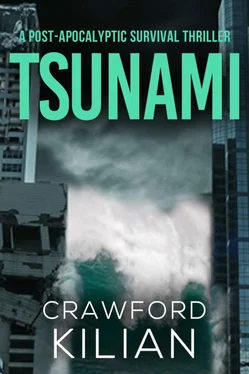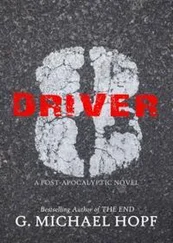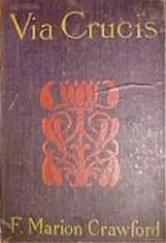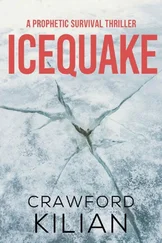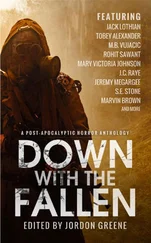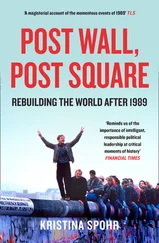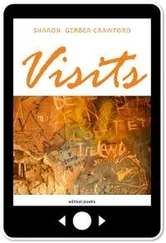Allison picked irritably at the peeling skin on his nose. Sunburn: he had pale and vulnerable skin, and the ultraviolet seemed to get past even broad-brimmed hats, but he was not about to run around like a clown, his nose painted white with sunblock ointment. At least the heavy overcast today would block some of the UV. He envied Shauna; she just turned a deeper and deeper brown.
Breakfast was two cups of coffee, black, strong and unsweetened. Then fifty push-ups and fifty sit-ups on the cold tile floor of the kitchen before he went back upstairs to his dressing room.
Allison had thought carefully about the clothes for today’s interview: khaki trousers and safari shirt, dark-green ascot, glossy Wellingtons. A light-brown leather jacket with a broad sheepskin collar. He studied the effect in the mirror of his nineteenth-century wardrobe: outdoorsy, macho, semi-military. His close-cropped black beard and gold-rimmed glasses might make him look a little too bohemian, even left-wing; the beard might have to go soon. His hair was getting shorter with every styling — not yet a soldier’s white sidewall haircut, but close enough. The hole in his left ear lobe had closed up nicely. He put on a flat-brimmed Stetson, almost like a drill sergeant’s.
Not a bad effect, he decided. It helped to be over six feet, with big shoulders and no belly. Even the sunburned nose helped a little, made him look less… studied. Sometimes your production values could be too good.
“Who are we today — Ernest Hemingway or Smoky the Bear?”
Shauna stood in the doorway to the bedroom, wrapped in an old terry-cloth bathrobe. Allison framed her between his hands, the great director visualizing a shot.
“Kid, you got funk. Real funk. The robe is a genuine objet trouve , but I think I see pink plastic curlers in your hair, plus fuzzy pink slippers on your tootsies. Then in the background we see in deep focus the five-piece dinette set, genuine Formica and wood-grain vinyl trim, a K-Mart special this week only, plus a seventeen-inch TV set playing afternoon soaps.”
“Wow. What are you popping?”
“Caffeine, real Colombian brown. But I don’t drink it, I just snort it.”
Shauna leaned against the doorframe and stretched in a big yawn. Not bad; remember that. It would look better in a black lace nightie, real Rita Hayworth, or even nothing at all. She doesn’t know the killer is lurking in the closet with the butcher knife, but the audience does.
“Where you going?”
“Fort Ord. Lunch with our old buddy General Miles. Two or three drinks, burger and fries, then I ask to borrow the Sixteenth Airmobile Cavalry for a couple of months.”
“Gee, thanks for not inviting me.”
“Kid, you don’t get invited — you get deployed. You’re my force de frappe . I don’t waste you in these little skirmishes.” He put his arms around her.
“God, you say the sweetest things to me, I mean, really, God.”
They lurched companionably downstairs to the kitchen, arms around each other. Shauna poured herself a cup of coffee, took the mandatory sip-before-first-smoke-of-the-day, and lighted a Marlboro. She slid into a chair at the kitchen table, next to the window.
“Know what I miss? I really miss the hills being green.” She waved her cigarette at the hillside across the creek: it was a dull beige, with here and there a green bush or weed.
“Wait’ll next year, kid.”
“Do you think it’ll be okay again by next year?”
“Kid… No. It won’t be okay. It’ll be worse. A whole lot worse.”
“Hey, Bob Tony. It’s such a beautiful morning, don’t spoil it.”
He looked around the high-ceilinged kitchen, at the gleaming copper pots, the used-brick fireplace, the microwave, the doorway to the sauna and hot tubs.
“Okay, it’s a bad setting for a prophet of doom,” he said. “But I’m getting an intuition. Like this next project could be the last for a long time, because already there’s no cable and soon there won’t be any more movie theatres.”
“Okay,” she shrugged. “This is the way the world ends. So what?”
“The oracle is working on it. — Listen, I’m late, I’m due for lunch in half an hour. What are you doing today?”
“Thought I’d go into Carmel, do some shopping.”
“Mmmh. Okay. I’ll be back around three or four. Talk to Lupe about dinner before you go.” He kissed her with husbandly absent-mindedness and left.
The house was part of a compound on the crest of a narrow ridge. On the north stood a barn and stables; on the east, a garage, sheds and two-story guest house; on the south, a big greenhouse and the low, flat-roofed servants’ quarters. The area within the compound was partly garden and partly swimming pool.
Allison sprinted through the dead garden, past the swimming pool, and into the garage. Hipolito Vasquez, the gardener and handyman, was changing the spark plugs in the Chevy van. Next to the van were Allison’s red Mercedes 450 SL convertible and Shauna’s silver Jaguar XJ sedan.
“Buenos dias, Don Roberto.”
“Buenos dias, Hipolito. Y como estan los ojos, hombre?”
Hipolito grinned under his salt-and-pepper moustache. “Mucho mejor, gracias a Dios.” He had made the mistake, a few days ago, of working outside without sunglasses. The UV had given him a mild dose of snow blindness. A lot of people got it these days, but usually only once: two or three days of agony were enough to teach caution to anyone.
Allison got into the Mercedes; Hipolito opened the garage door, and the convertible backed out into the rain. Allison let it glide down the long, curving blacktop drive to the gravel road along the creek.
He didn’t like the road because it gave others access to his land. Farther up the creek was a ranch run by some weird religious sect called the Brotherhood, and farther still a handful of cabins that had been taken over recently by four or five families. Both groups left Allison and each other alone, but it was still an annoyance to see their jeeps and vans going past.
The creek was high, running fast and brown. Allison worried about it. The willows and oaks along the stream seemed to be handling the UV pretty well so far, but most of the local grasses were dying off. Erosion was getting serious, and in places the creek had undercut healthy trees and toppled them into the water.
The valley narrowed as he drove southwest, until the road wound through a steep-sided canyon just a few feet above the creek. As he came round a corner, Allison swore and stamped on the brake. Walking in the middle of the road was a tall figure in a hooded green poncho.
Without even glancing over his shoulder, the man moved to the side of the road. Allison roared past him in a spray of mud and gravel, then stopped and backed up.
“Need a ride?”
The man was young, with a blistered red face beneath sunglasses. He smiled shyly and nodded.
“Where you headed?” Allison asked.
“Monterey, sir.”
“Jesus, that’s still eight or nine more miles. Come on, get in. I’m going right into Monterey.”
“Bless you, sir. It’s very generous of you.”
One of the Brotherhood. Allison cursed the guilty charity that had made him stop, while the young man got in and dripped on the leather seat.
The canyon twisted around a long, steep spur of rock and ended abruptly; the road dropped through a stand of oaks and met the Carmel Valley highway. From the valley, it was hard to see any clear break at all in the hills; Escondido was indeed a hidden creek.
Allison drove fast, with his usual brusque aggressiveness. Not many other cars were on the road; the fields and orchards of the Carmel Valley looked bleak; the only livestock in sight were six or seven cows in a meadow, bunched around a stack of hay. Each wore clear plastic goggles — too common a sight to be funny anymore. Cattle without them went blind in a day, and the pain in their eyes drove them crazy. A blinded bull had killed a rancher up the valley a couple of months ago.
Читать дальше
